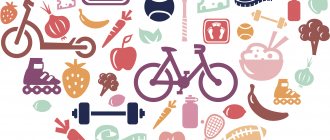Hello friends!
We often encounter injustice or witness situations that force us to think about how to make the world a better place. At the same time, most of us underestimate our own capabilities, believing that we do not have enough resources to have a noticeable impact on the surrounding reality. But each of us can make a contribution by doing small acts of kindness. Today we will look at several simple ways, using which, every person can make the world at least a little better. Let's begin.
What to do to improve the world?
Therefore, people who have the goal of improving the world should start with themselves and, with their positive example, show the way to others. It is like a burning candle that lights others. One candle will not reduce the fire, but many will be lit. We should worry about what we can influence and stop worrying about what we cannot influence. By occupying our minds with world injustice, we miss the opportunity to do justice ourselves, in our lives, by responding to goodness with goodness to our loved ones. A good indicator of a person is that he increases the good by reciprocating and doing good deeds. If something bad comes into contact with him, such a person becomes the last one for such a phenomenon, be it gossip, anger, quarrels, resentment, hatred or anything else. It is known that violence only begets violence, and some peoples, driven by revenge, simply exterminated each other until a third came. Thus, a person becomes a cemetery for bad and a source of good. Ultimately, only a big heart is able to digest all the bad and give out the good, while a weak heart will only throw out the bad and demand the good.
Attempts to only externally change the world by achieving certain economic, political, scientific or any other goals will not lead to anything, since the same person will stand behind all this. Yes, humanity should strive for external development in order to solve problems, but if external progress occurs at the expense of moral degradation, then the problems will only increase. Solving a problem does not mean achieving some number, but changing a person. Not through laws, violence, coercion or living standards, but through the voluntary fulfillment of their duties by every member of society, from small to great. This is also achieved by improving human nature through virtue.
We also recommend this article: Duty is an obligation and a law for a man of honor.
By abandoning the idea of virtue, humanity risks putting itself in conditions in which being Human means suffering. In such conditions, we will not be talking about prosperity, improvement, greatness and anything else, but about the notorious survival of society at the expense of great sacrifices, both human and moral. The further society moves along this path, the greater the need for sacrifices will become, and the more difficult it will be to get out of this hole. Therefore, it is the duty of every member of society to preserve it and pass it on in the best possible way to their descendants. By working intelligently for the common good, correctly fulfilling one's duties, and refusing to achieve fleeting desires through assumptions, everyone can make the world a better place. After all, if the hive is in trouble, the bee is not happy. We all live not only within the framework of one street, city, country, but within the framework of all humanity. And therefore hatred based on differences is also counterproductive from the point of view of conscious existence.
Scientists are changing the world here and now
Previously, entire generations of scientists could spend years and even centuries researching to prepare the ground for a single important discovery. In modern science, this situation has only partially been preserved. The world has accelerated so much that there is now a high probability of seeing the result of a scientist’s work put into practice within a few years after the start of research.
One of these rapidly developing areas is the creation of new materials that are being implemented everywhere - from household appliances to the space industry. The NUST MISIS scientific group, which deals with additive technologies, creates solutions for nuclear energy, aircraft and automotive industries. Perhaps in the near future these studies will lead to the creation of “smart” materials that will change their properties.
Program manager Vladimir Cheverikin explains why and how he and his colleagues are changing the future:
“The world of materials and technologies for their production are changing rapidly, the use of materials opens up new horizons, therefore, we are making the world a better place. Changing the world, in my opinion, means doing today what will be relevant and necessary in 10–20 years. The technologies we are currently working on in the field of creating materials have no analogues in the world.
Since childhood, I have always been interested in observing the processes taking place around me and looking for an answer to the question: “Why exactly is this happening?” They called me “little Why” because until I received an answer to the questions posed, I did not leave the interlocutor.
Of course, you cannot do science without interest. When your hobby and work are connected, you can achieve great results. When working on projects, we solve various problems, ranging from modeling materials and technologies to pilot processes in production, which constantly forces us to look for the answer to the same question: “Why exactly is this happening?”
Science constantly poses cutting-edge tasks for scientists. Most breakthrough discoveries happen when radical new ideas are superimposed on a base of proven knowledge and experience. Therefore, it is often young scientists who turn out to be the people who change the world. This is especially true for new areas of research, where implementation can be achieved even faster.
Donations
Donations to charitable organizations help make the world a kinder and better place. In this way, you can help those suffering not only in your region, but throughout the planet. Such charitable companies organize assistance to those who need it most.
Among other societies, one can note such as “Give Life”, “Rusfond”, WorldVita, “Doctors Without Borders”, “Life Line”, etc. These are official organizations that really help, talk about it and are ready to account for every ruble spent.
How evolution taught us to be altruistic
Global warming, economic inequality - modern reality is full of a variety of problems that encourage people to change the world.
In the struggle for a better future, many sacrifice their time and nerves, and sometimes risk their jobs, good relationships or personal safety. Something forces people to take on global problems that do not directly affect them. This mysterious force is the ancient evolutionary mechanisms that force us to care about the survival of the group. Only at first glance it seems that altruistic self-sacrifice has nothing in common with selfish self-preservation. From a biological point of view, fighting for a common cause helps the entire species survive. This is what determines the behavior of people as social animals.
Altruism increases risks for an individual, but makes the entire system more stable. Scientists briefly describe the paradox of such an adaptive strategy: “Egoism is more beneficial than altruism within the group. But altruistic groups defeat egoistic groups.” Therefore, people often deal with other people's problems to the detriment of personal interests.
Altruism turns out to be a beneficial personal behavior strategy from a psychological point of view. By showing concern for others, we increase our own status and can count on the support of others if we ourselves need help. Therefore, firefighters enter burning houses, and scientists present new developments.
The paradox of altruism is that by caring for others, we improve our own mental and emotional state. Sociologists have found that the feeling of happiness is directly related to helping other people. Some researchers report effects such as reduced stress, lower blood pressure, and even increased life expectancy. People who devote a lot of time to volunteering are less likely to suffer from loneliness and experience almost no feeling of alienation. As a result, altruistic behavior helps us find purpose and meaning in our lives.
Do good
Another way to make the world around us a little better is through good deeds. Most people believe that you need to do good only in relation to those who can appreciate it and respond equally. To some extent, this approach is selfish - a person does good deeds only on the condition that he can receive a reward. Of course, such an approach has a right to exist. However, the most sincere actions are those of people who do not expect rewards for their work. Everyone can make the world a little kinder - after all, doing good deeds is not difficult. The main thing is to be sincere. Real goodness does not pursue selfish interests and comes from the heart.
Blood donation
Regular (or even one-time) donation of blood and its components is a great way to help. This way, each donor contributes to the national goal of increasing the blood donor base and can be sure that he has participated in saving a human life.
Advertising on Forbes
Ensuring there is enough blood for hospitals and vulnerable patients is a challenge during the coronavirus pandemic. Thankfully, thanks to our dedicated donors, blood supply levels are currently low. In the healthcare sector, there is an understanding of how great the risk of blood shortages in hospitals is - it is clear that we will soon need many more donors than now. This is because people are afraid of contracting COVID-19 during donation, but this fear is not justified.
If a person does not have characteristic symptoms (fever, chills, sore throat, cough, nasal congestion, runny nose, weakness), you can safely donate blood. To make the process even safer, blood center staff have introduced additional precautions. They use disposable gloves, disinfect donor sites after each donation, use a sterile kit for each collection, prepare hands for donation using an aseptic means, and pre-measure the temperature of future donors at the entrance.
If you want to change the world, start with yourself
Humanity has always wanted to build a safer and more productive society, and new generations have been at the forefront of these changes. It's not just about youthful maximalism. Research shows that young people are generally more likely to care about how future generations will live than older people.
As we get older, we often become less involved in social life. We have more routine tasks, we focus on personal achievements and sometimes consciously distance ourselves from global problems. This effect is described by disengagement theory, which suggests that the gap between individuals steadily increases with age.
Despite this, many changes in the world are initiated by individuals of all ages. As soon as one person begins to actively invest time and effort into solving the problem, more and more people will get involved in the work. Altruism is a contagious state, and even small steps can change the world, at least by inspiring other people.
It's important to notice the impact we have on problems, even those that seem small. Underestimating your own efforts is a classic decision-making mistake. Psychologists advise considering the sum of all the small steps we take, and also understanding that we are not alone in our aspirations. Therefore, any, even the smallest action has meaning. Positive changes tend to grow exponentially.
Participate in elections
Don't neglect your right to vote. If a bureaucrat, a mediocre politician or some other social figure ends up in power, then nothing good will come from this to the world. Even if it seems to you that all this was bought and the results were rigged, you should not give up like hundreds of others and let it happen at random.
It is because of this that people who are greedy and not at all concerned about you and those around you come to power, no matter what level. They are only interested in their own ambitions, goals and other things that are insignificant to potential voters.
Just think that in our country, at most 60% come to various elections, and sometimes this figure does not rise above 40%. But if 90% had come, then the situation would probably have changed. So, to make the world a better place, be sure to participate in elections (city, regional, federal, etc.).
Animal protection
Man on planet Earth is the pinnacle of evolution, the dominant form of life and, as mentioned above, the most dangerous predator. We must protect weak creatures, that is, those who cannot oppose anything to our progress, as well as to their extinction.
There are many ways to take care of our little friends. It is imperative to support bills aimed at protecting fauna and try to promote them yourself. Also, you should not wear fur coats made from natural fur. Many may argue that it’s cold in Russia, but the point here is completely different.
Natural fur does not hold a monopoly on warmth. Experts in this field, along with manufacturers, perfectly understand and know that modern technologies have given the world many materials and tools that are lightweight and protect our body from cold and wind at least as well as natural furs.
In addition, a good half of consumers of arctic foxes, minks and other defenseless animals do not encounter the cold at all. All their movements through the harsh Russian frosts are a few steps from the door of the house to the car, and then to a boutique, fitness center or restaurant. A genuine desire to wear fur is chic, prestige and dust in the eyes of society.
You can also help animals with the help of charitable organizations similar to those we mentioned in the previous section. “Giving Hope” is a striking example of this. Both companies come out with the slogan: “Let's make the world a better and kinder place!” And they are also ready to account for every ruble spent.
A practical guide on how to change the world
To achieve visible changes in the world, you need to be patient. Psychologists and coaches will tell you how best to approach work that should influence the future of humanity. We have collected some of the most important tips on how to change the world for the better and not burn out yourself.
- Do something. The first steps on the path of change are the most difficult, but you almost always have to start small.
- Believe that you are the one who can change something - even if you don’t yet have a clear plan and answers to all the questions. They will come in time.
- Your motivation must be bigger than yourself. If your business helps other people, you are unlikely to want to quit halfway. And don’t forget to listen to those for whom you are doing all this.
- Don't be afraid to make mistakes. Failures should not stop us; they help us see weaknesses and do our work even more efficiently. Be persistent.
- Don't forget about yourself. Sometimes it is important to put everything aside and allow yourself to rest so as not to burn out over the long haul. Changing the world is still a marathon, not a sprint.











